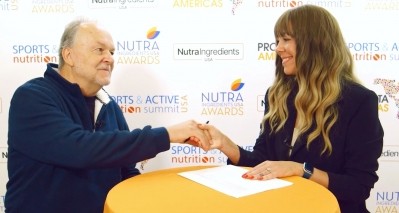CRN hopes citizen petition leads to more targeted discussions with FTC

In the petition, CRN argued the FTC should review its new Health Products Compliance Guidance because CRN says it discourages the dissemination of truthful nutrition information and constructs an impression that randomized controlled trials are required for general well-being and structure/function claims, with no flexibility for the consideration of other forms of reliable evidence.
“We don't have anything official out of the FTC that they would be able to talk,” Megan Olsen, senior vice president and general counsel at CRN, told NutraIngredients-USA. “I do think we're very hopeful given the continued comments from the FTC staff attorney and what appears to be a willingness of FTC to engage on the kind of scope of the guidance.
The FTC sent a notice earlier this year to 700 organizations, including members of CRN, reminding advertisers that “they are legally required to have a reasonable basis to support objective product claims and to deter them from making deceptive claims in the future and were warned they could face significant civil penalties if they fail to adequately substantiate their product claims,” NutraIngredients-USA reported.
The CRN petition was submitted after a coalition, including the Consumer Healthcare Products Association (CHPA), the American Herbal Products Association (AHPA), The Food Industry Association (FMI), Natural Products Association (NPA), Personal Care Products Council (PCPC), and United Natural Products Alliance (UNPA), filed their own citizen petition to the FTC.
That petition asserts the FTC has departed from long-standing guidance from the FTC and FDA, which said that nonprescription drugs and supplements do not require drug-level clinical trials.
Structuring the conversation
CRN decided to file its petition separately to concentrate solely on supplement and functional food issues.
“We felt like the best course of action, given our focus on supplements and food, would be to have a petition that was focused on those issue areas,” Olsen said. “That way it would structure the conversation with the FTC to be specific to those concerns. Those are the areas we represent for our members, which allowed us to be able to pinpoint some of the more, I think, concerning aspects of the FTC's guidance and the way in which we were able to fine tune our discussion around how (DSHEA) is set up, how structure function claims are permitted to be made for supplements and food, and the type of substantiation that's required under the Food, Drug and Cosmetic Act.”
In its petition, the trade organization requests that FTC clarify the following:
- There is no bright-line requirement that a company possess randomized, controlled clinical studies before making “health benefit” claims for dietary supplements or food;
- there is no requirement for full product testing versus testing of certain ingredients;
- professionals like nutrition researchers, nutritionists, and pharmacologists can be suitable scientific experts to assess substantiation for dietary supplement and food claims;
- dietary supplements and foods are prohibited from making claims to treat or prevent disease without authorization from the FDA.
Olsen added: “I go back to one of our big concerns with the guidance, and the way the FTC laid it out is that it's too broad.
She explained that a more targeted discussion would improve the chances of receiving clarification from the FTC on what’s in the guidance.
“[W]e recognize and are very appreciative of the FTC, to be candid in that way, and believe that there is an opportunity to clarify the way that the guidance is written,” she said. “It's focusing on disease claims, it's focusing on court precedent, cases that talked about disease cases, or I should say disease claims cases, where companies made very strong cause and effect claims.”
CRN acknowledges that the FTC has opened the door to future dialogue and hosted a fireside chat with Christine DeLorme, Esq. from the FTC's Division of Advertising Practices this summer at the ACI-CRN Legal, Regulatory and Compliance Forum to discuss the level of claims substantiation required and what constitutes competent reliable evidence.
Last month, speaking at the CHPA Regulatory, Scientific, & Quality (RSQ) last month, DeLorme told attendees that the FTC is not suing anyone for making structure/function claims in isolation, NutraIngredients-USA reported.
“We’re an agency that has to prioritize,” DeLorme said. “We’re looking at the most serious health claims. Does this mean I have to have RCTs for my structure-function claims? There are certainly cases where you don’t need RCTs.”









